By Levi R Bryant
This theoretically omnivorous paintings attracts on disciplines as varied as deconstruction, psychoanalysis, Marxism, media reviews, object-oriented ontology, the recent materialist feminisms, actor-network thought, biology, and sociology. via its clean cognizance to nonhumans and fabric being, it additionally presents a framework for integrating the main necessary findings of severe conception and social constructivism.
Kritische Metaphysik der Substanz: Kant im Widerspruch zu by Andree Hahmann
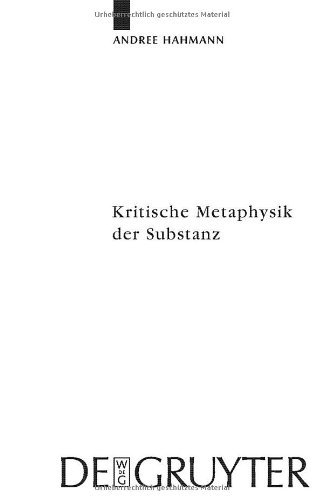
By Andree Hahmann
Hazard by J.G. Bennett,A.G.E. Blake
By J.G. Bennett,A.G.E. Blake
Principles of Cartesian Philosophy by Baruch Spinoza
By Baruch Spinoza
Awakening from the Dream by J.L. Harter
By J.L. Harter
Mehr Lebensqualität durch gelebte Spiritualität (bewusste by Christian Daa Larson,Benno Schmid-Wilhelm
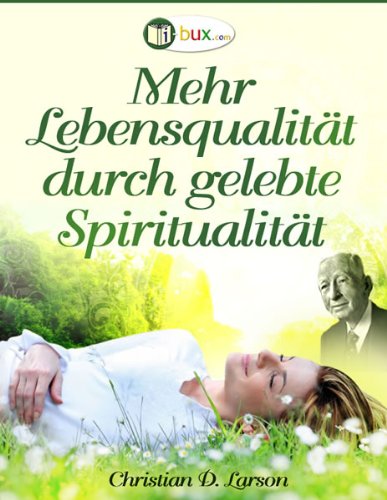
By Christian Daa Larson,Benno Schmid-Wilhelm
In diesem 1912 erschienenen Buch erzählt uns Dr. Larson:
"Sie können Ihr Leben reich, komplett und excellent gestalten. Ihre imaginative and prescient kann Wirklichkeit werden. Es gibt eine Wissenschaft und eine Kunst des idealen Lebens. Die Türe steht Ihnen für etwas Besseres offen. Sie können jetzt damit beginnen, Ihre Träume wahr zu machen. Sie können sich Ihre Herzenwünsche und Ihre künsten Sehnsüche erfüllen".
Christian D. Larson glaubte fest an die schlummernden Kräfte im Menschen, die mit der richtigen Einstellung erweckt werden könnten.
Er übte einen nachhaltigen Einfluss auf Ernest Holmes aus. Holmes hatte das Büchlein "Science und wellbeing and fitness" studiert und struggle von den Schriften Larsons sehr angetan.
Der identify Christian D. Larson erschien bereits 1928 im Magazin "Science of Mind".Sein "Optimist's Creed" (siehe unten) stammt aus dem Jahre 1912 und erschien erstmals in seinem Buch "Your Forces and the way to take advantage of Them".
1922 wurde es als Motto der internationalen Optimistenvereinigung angenommen. In amerikanischen Krankenhäusern wird es häufig an die Wand gehängt, um den Genesenden idea und Hoffnung zu vermitteln.
Das oben genannte "Optimist's Creed" lautet folgendermaßen:
Ich verspreche mir selbst:
zu groß für Sorgen zu sein,
gut von mir zu denken und diese Tatsache der Welt bekannt zu geben,
keine lauten Worte von mir zu geben.
mir selbst nach Kräften treu zu bleiben.
im Glauben zu leben, dass die ganze Welt auf meiner Seite steht,
meinen Seelenfrieden durch nichts stören zu lassen,
nur über Gesundheit, Glück und Wohlstand zu sprechen,
meine Freude wissen zu lassen, dass sie wertvolle Menschen sind,
bei allem auf die Sonnenseite zu sehen und Optimismus zu verbreiten,
nur das Beste zu erwarten,
mich über die Erfolge anderer genauso zu freuen wie über meine eigenen,
die Fehler der Vergangenheit zu vergessen und in der Zukunft noch Besseres zu erreichen,
immer intestine gelaunt zu sein und jedem ein Lächeln zu schenken.
Parts and Places: The Structures of Spatial Representation by Roberto Casati
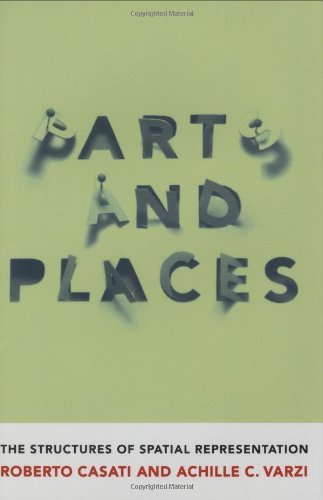
By Roberto Casati
Thinking approximately house is considering spatial issues. The desk is at the carpet;
hence the carpet is less than the desk. The vase is within the field; as a result the field isn't within the vase. But
what does it suggest for an item to be someplace? How are items tied to the distance they occupy? In
this booklet Roberto Casati and Achille C. Varzi handle the various primary concerns in the
philosophy of spatial illustration. Their start line is an research of the interaction between
mereology (the examine of part/whole relations), topology (the research of spatial continuity and
compactness), and the speculation of spatial place right. This results in a unified framework for
spatial illustration understood rather generally as a thought of the illustration of spatial
entities. The framework is then established opposed to a few classical metaphysical questions resembling: Are
parts necessary to their wholes? Is spatial co-location a adequate criterion of id? What (if
anything) distinguishes fabric items from occasions and different spatial entities? The concluding
chapters take care of purposes to themes as varied because the logical research of flow and the
semantics of maps.
Business Ethics in Theory and Practice: Contributions from by Patricia Werhane,Alan E. Singer
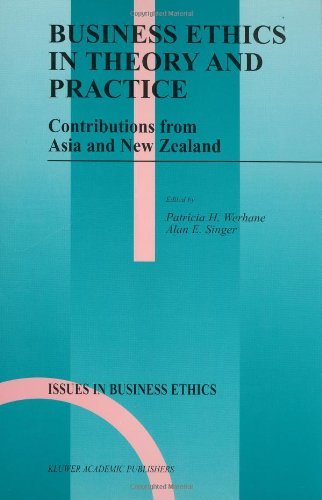
By Patricia Werhane,Alan E. Singer
The Puzzle of Existence: Why Is There Something Rather Than by Tyron Goldschmidt
By Tyron Goldschmidt
This groundbreaking quantity investigates the main basic query of all: Why is there anything instead of not anything? The query is explored from various and radical views: spiritual, naturalistic, platonistic and skeptical. Does technology solution the query? Or does theology? Does every little thing desire an evidence? Or can there be brute, inexplicable proof? may there were not anything whatever? Or is there any being that can no longer have did not exist? Is the query significant in the end? the quantity advances state-of-the-art debates in metaphysics, philosophy of cosmology and philosophy of faith, and may intrigue and problem readers drawn to any of those subjects.
A Metaphysics for the Mob: The Philosophy of George Berkeley by John Russell Roberts
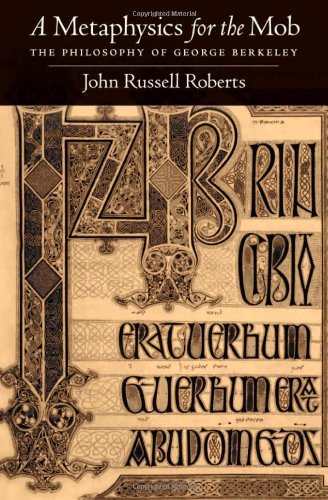
By John Russell Roberts
Roberts starts off via concentrating on Berkeley's view of the character of being. He elucidates Berkeley's view on Locke and the Cartesians and by means of analyzing Berkeley's perspectives approximately comparable innovations similar to unity and simplicity. From there he strikes directly to Berkeley's philosophy of language arguing that scrutiny of the recognized "Introduction" to the Principles of Human Knowledge finds that Berkeley pointed out the ideational concept of which means and knowing because the root reason for a few of the worst of man's highbrow blunders, now not "abstract ideas." summary principles are, really, the main debilitating symptom of this underlying sickness. as opposed to the ideational thought, Berkeley defends a rudimentary "use conception" of which means. This figuring out of Berkeley's method of semantics is then utilized to the divine language thesis and is proven to have vital outcomes for Berkeley's pragmatic method of the ontology of common gadgets and for his method of our wisdom of, and relation to different minds, together with God's. Turning subsequent to Berkeley's a lot aligned account of spirits, the writer defends the coherence of Berkeley's view of spirits in terms of offering an interpretation of the active/passive contrast as marking a normative contrast and by means of concentrating on the position that divine language performs in letting Berkeley determine the soul with the desire. With those 4 ideas of Berkeley's philosophy in hand, he then returns to the subject of good judgment and gives a safety of Berkeley's philosophy as outfitted upon and expressive of the inner most metaphysical commitments of mainstream Christianity.
Roberts' reappraisal of this crucial determine may still entice all historians of philosophy in addition to students in metaphysics and philosophy of language.